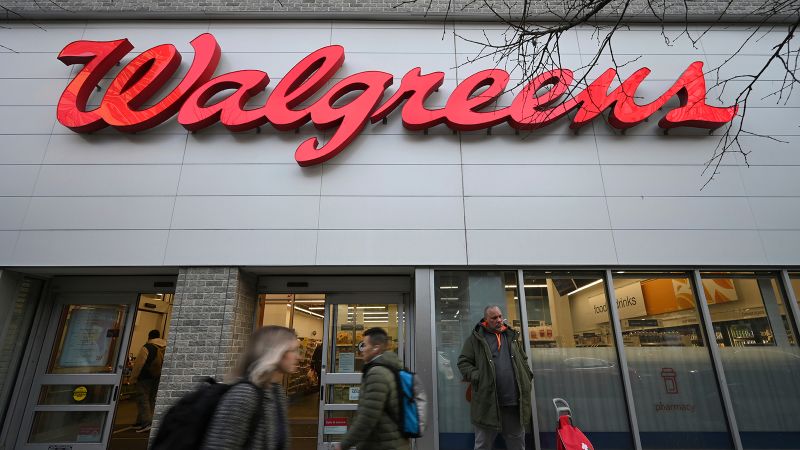Walgreens, a prominent American pharmacy chain, has recently entered into a significant agreement with the United States Department of Justice, pledging to pay up to $350 million as part of a settlement regarding its involvement in the opioid crisis. The allegations against Walgreens center around the unlawful filling of millions of prescriptions for opioids and other controlled substances over the past decade— a claim that the Justice Department has brought to light.
According to the agreement, Walgreens is obligated to pay at least $300 million directly to the federal government. An additional sum of $50 million will be owed only if the pharmacy chain undergoes a sale, merger, or transfer before the year 2032. This settlement was finalized last Friday and marks a crucial step for the company in addressing the legal pressures stemming from its practices involving controlled substances.
The government’s legal complaint, which was filed in January at the U.S. District Court for the Northern District of Illinois, contends that Walgreens knowingly filled millions of illegal prescriptions for opioids between August 2012 and March 2023. The specific accusations target the pharmacy for filling prescriptions deemed excessive or filled too early, raising considerable concerns about their validity. Walgreens has responded to these allegations, stating that it “strongly disagrees” with the government’s legal stance and asserts its lack of liability in the matter.
Fraser Engerman, a spokesperson for Walgreens, emphasized that this settlement would allow the company to resolve all litigation related to opioids raised by federal, state, and local governments. He also highlighted the settlement’s favorable terms from a cash flow perspective, enabling Walgreens to better concentrate on its strategic turnaround efforts.
The opioid crisis has severely impacted numerous pharmacies across the nation, and Walgreens is not alone in facing repercussions. The company previously announced plans to close approximately 1,200 stores as it grapples with dwindling customer visits and a shrinking market share. Concurrently, competitor Rite Aid filed for bankruptcy in late 2023 due to financial losses and analogous opioid-related settlements. Furthermore, the Department of Justice has initiated a separate lawsuit against CVS, signaling widespread scrutiny across the pharmacy industry for their roles in the opioid epidemic.
The leaked details of the Justice Department’s complaint allege that Walgreens’ pharmacists filled suspicious prescriptions despite clear indicators that they were likely invalid. Also troubling is the assertion that Walgreens exerted pressure on its pharmacists to expedite the filling process. Per the government’s accusations, Walgreens compliance officials ignored overwhelming evidence pointing to the unlawful filling of prescriptions and failed to relay important information concerning opioid prescribers to the dispensing pharmacists.
Notably, Walgreens also allegedly submitted claims for payment for many of these questionable prescriptions through Medicare and other federal healthcare programs, violating the False Claims Act. Following this settlement agreement, the DOJ has filed a motion to dismiss its complaint against Walgreens.
Attorney General Pamela Bondi reiterated the serious legal obligations pharmacies hold in managing controlled substances, emphasizing that safe and professional practices are paramount. In light of this case, Walgreens has taken steps to improve its operations, having agreed to implement measures in collaboration with the Drug Enforcement Administration (DEA) to bolster its compliance with regulations concerning controlled substances. This includes adopting policies that necessitate pharmacists verify the legitimacy of prescriptions before dispensing them.
In conjunction with the Department of Health and Human Services, Walgreens is set to establish a compliance program that incorporates training and oversight measures, aimed at ensuring responsible dispensing of controlled substances. The significant settlement also resolves several whistleblower lawsuits brought forth by former Walgreens employees, adding another layer of accountability for the pharmacy chain in light of the ongoing opioid crisis.
The resolve of this settlement comes against a backdrop of extensive financial ramifications felt across the healthcare sector, where drugmakers, wholesalers, and pharmacies have collectively settled over $50 billion with various government entities in recent years, with a substantial portion earmarked for combatting the opioid crisis. This latest settlement underscores the ongoing and systemic struggles many in the pharmaceutical industry face as they navigate the fallout from the opioid addiction epidemic.











